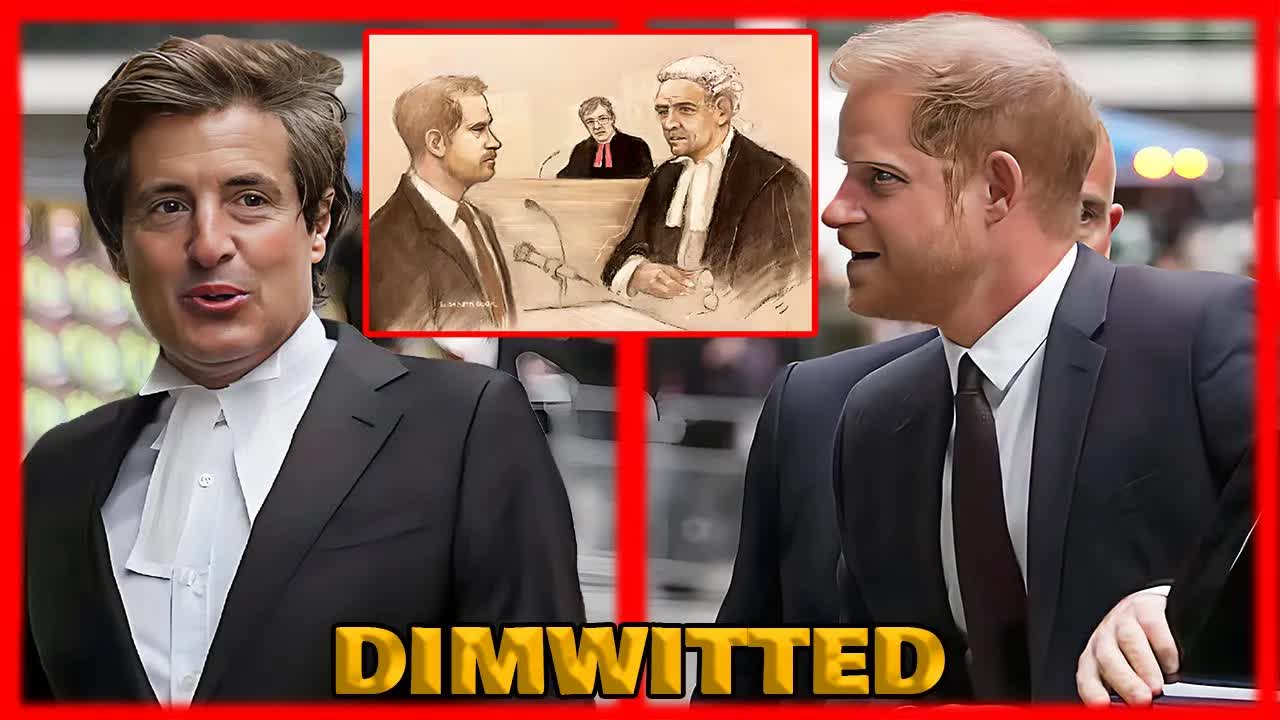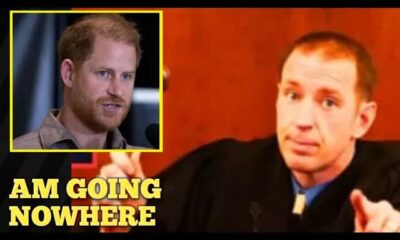The News
Prince Harry’s Courtroom Drama: A Tale of Grievances and Glaring Ignorance
In a courtroom filled with tension, Prince Harry returned for his second day of testimony, stepping into the witness box just before 10:30 AM.
The atmosphere was thick with anticipation as he prepared to address the allegations surrounding phone hacking by the Mirror Group Newspapers.
Sporting the same suit as the previous day, he had swapped his purple tie for a silver one, signaling perhaps a subtle shift in his demeanor.
As he settled in, Harry appeared to stretch his neck and sip water, readying himself for the proceedings ahead.
His memory seemed to have taken a turn for the better compared to the previous day when he struggled to recall specific events.
This time, he was more articulate, especially regarding his past experiences, although many of his recollections still felt vague.
The court delved into Harry's tumultuous youth, touching on everything from a knee injury that postponed his entry to Sandhurst to his notorious escapades at strip clubs.
He reflected on his playboy lifestyle and his relationship with ex-girlfriend Chelsea Davy.
Despite the gravity of the situation, Harry's recollections were often inconsistent, leading to moments of confusion.
When questioned about his visits to a London nightclub called Amico, Harry downplayed the frequency of his attendance, claiming he didn't frequent it as often as reported.
He insisted that the case at hand was fundamentally about phone hacking, not a personal vendetta against the press, despite Andrew Green's cross-examination tactics that seemed to provoke him.
Harry revealed that he decided to pursue this legal action after a chance meeting with lawyer David Sherborne in the south of France.
While the picturesque setting is often associated with luxury and leisure, it did not distract from the serious nature of the case.
Throughout the questioning, Harry displayed a mix of focus and distraction, often drifting off-topic and using the opportunity to air his grievances.
His testimony took a poignant turn when discussions shifted to his personal life, particularly the media's portrayal of his breakup with Chelsea Davy.
He described the coverage as insulting, expressing his disdain for how such a private moment was turned into fodder for public consumption.
It was clear that the emotional toll of these stories weighed heavily on him.
As the questioning continued, Harry's responses became increasingly evasive.
He struggled to define key terms and concepts, leading to moments of frustration for his interrogators.
At one point, Green expressed exasperation, reiterating the structure of their exchange, which seemed to fall on deaf ears as Harry continued to ponder questions rather than answer them directly.
The court also touched on the sheltered life Harry has lived, marked by privilege and a pervasive sense of distrust.
He spoke about the people who surrounded him—his guards, managers, and even police—highlighting a feeling of loneliness that permeates his existence.
His reflections painted a picture of a man grappling with his identity amidst the chaos of royal life.
As the day wore on, Harry's ignorance about certain topics became painfully evident.
When asked about the media's treatment of his mother and her rumored affair with James Hewitt, he responded with a mixture of defensiveness and vulnerability.
The implications of these discussions seemed to evoke a deep-seated pain within him, revealing layers of complexity in his relationship with the press.
The courtroom drama intensified as Harry's testimony veered into the territory of self-pity.
He frequently referenced his struggles and misfortunes, often circling back to Chelsea Davy, suggesting that unresolved feelings lingered beneath the surface.
His emotional appeals seemed to serve as a backdrop to his legal arguments, blurring the lines between personal grievances and the case at hand.
Critics have noted that Harry's fixation on his past relationships and personal woes may overshadow the core issues of the trial.
Some observers speculate that his motivations are entwined with a desire for validation and a need to reshape his narrative in the public eye.
This introspection raises questions about whether his actions are driven by genuine concern or a quest for sympathy.
As the proceedings drew to a close, it was evident that Harry had found a platform to voice his frustrations.
Whether this trial will yield meaningful change in the realm of journalism remains to be seen.
However, one thing is clear: Prince Harry's journey through the courtroom reflects not just a battle with the media but also an ongoing struggle with his own identity and the legacy of his royal upbringing.




































































